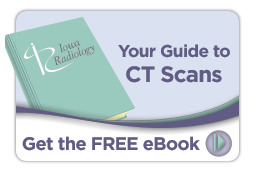 Take Care of the Earth, and It Will Help Take Care of You
Take Care of the Earth, and It Will Help Take Care of You
Recent research shows that spending time in nature not only feels good; it has measurable effects on our health. This Earth Day, take some time to enjoy the great outdoors and appreciate how nature supports our good health. You don’t even have to head out of town. Simply spending time in urban parks and with the greenery that lines our streets can provide important health benefits.
How does nature support good health?
A study of 20 countries, including the US, the UK, Spain, Germany, and Japan, found that spending time in or living near natural green spaces has a number of positive health effects:
- Decreased risk of cardiovascular disease
- Lower diastolic blood pressure
- Reduced heart rate
- Reduced cortisol levels
- Lower risk of type II diabetes
- Reduced risk of preterm birth
- Longer sleep duration
- Lower risk of premature death
Other research has found additional positive effects of spending time in nature, including
- Improved short-term memory
- Reduced inflammation
- Reduced risk of nearsightedness
- Better concentration
- Improved creative problem-solving
- Reduced cancer risk
Why does simply spending time in nature affect our health?
While scientists have yet to understand all the ways in which spending time in green spaces contributes to good health, research indicates some potential causes. Japanese research suggests that the practice of “forest bathing” creates positive health effects by exposing the body to phytoncides, naturally occurring plant compounds with antibacterial properties, that are released by trees. These compounds have also been implicated in the production of anti-cancer proteins, which has been found to increase for up to seven days following a three-day trip into the woods.
Cardiovascular Disease in the US
The Centers for Disease Control and Prevention reports that as of 2017, 28.2 American adults, accounting for 11.5% of adults in the US, had been diagnosed with heart disease and that 610,000 people in the US die of heart disease every year, amounting to 1 in 4 deaths. Lack of physical activity, uncontrolled stress, and high blood pressure are all risk factors for developing cardiovascular disease, and inflammation is associated with a greater incidence of heart attack and stroke. Spending time outdoors can help reduce these risk factors, supporting a healthy heart and vascular system.
Assessing Heart Disease Risk
Understanding your personal risk of cardiovascular disease, heart attack, and stroke, can help you take the steps necessary to protect your heart health. A CT cardiac calcium test can provide valuable information about your current state of cardiovascular health. This test measures the amount of calcified plaque in the arteries that provide blood to the heart and expresses this in a score that can range from zero to more than 400. A score of up to 10 indicates no or minimal evidence of coronary artery disease; scores between 10 and 100 show mild to moderate evidence of disease and moderate to high risk of heart attack; and scores over 400 show extensive evidence of disease and high heart attack risk.
Iowa Radiology provides a wide range of screening and diagnostic medical imaging modalities, including CT cardiac calcium scoring. The test is quick, easy, and noninvasive, taking only about 10 minutes to perform. It’s available at our Clive and downtown Des Moines clinics with a doctor’s referral. For more information about CT scanning, including cardiac calcium scoring, click the link below to access our free ebook.


